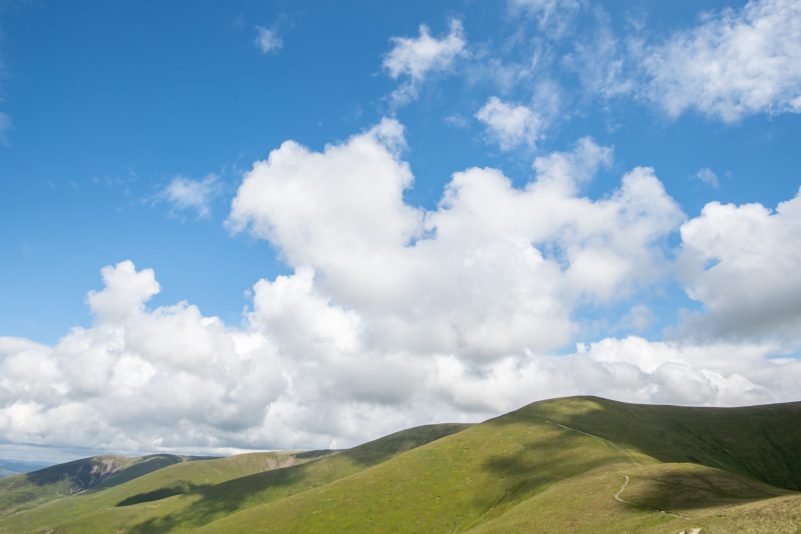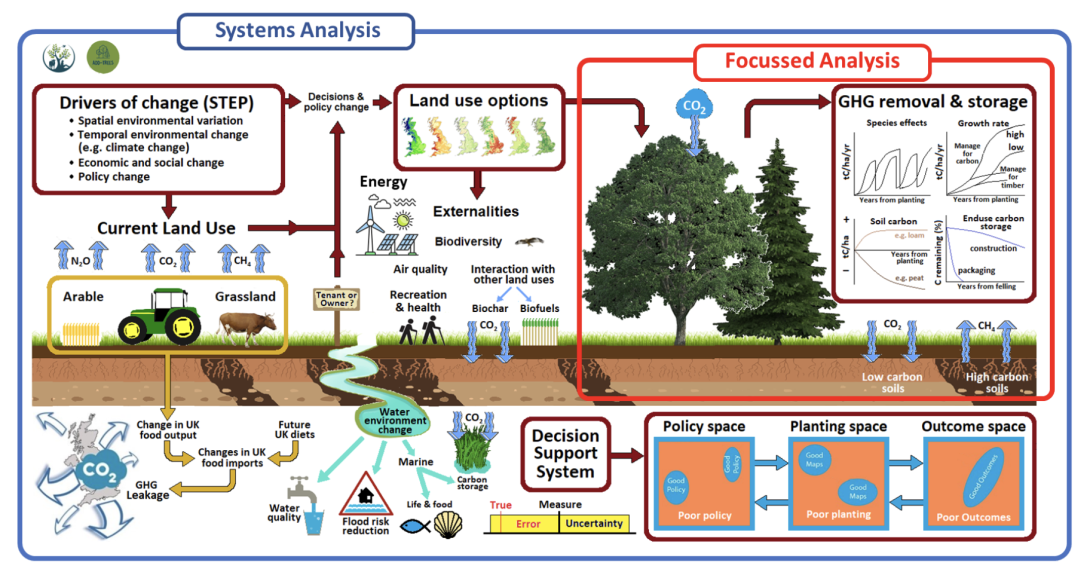Systems thinking in net zero decision making: the dangers of focussing

The dangers of focussing!
28th January 2025 is “International Reducing CO2 Emissions Day” designed to get us all focussing on addressing climate change – because focussing on a problem is a good idea – right?
Well not when that focus makes you blind to everything else.
Nobel Laureate Daniel Kahneman coined the term ‘Focussing Illusion’ to describe this problem, highlighting it with the Chinese proverb that ‘Nothing is as important as when you think about it’. None of us are immune to this – we think about something and everything else fades away. Unfortunately this tendency seems reflected in the decisions we make – including those with massive side effects. So continued reliance on fossil fuels seems a great idea when we just focus on all the benefits it gives us and ignore all the wider effects this has on the planet.
Clearly the Focussing Illusion can be a real problem in decision making – even when we are focussing on something as apparently uncontroversially good as removing greenhouses gases from the atmosphere by planting trees. Focussing just on those trees we can consider a host of directly related issues: which species of trees should we plant? How fast will they remove carbon from the atmosphere? How will they change the carbon in soils? What happens to that carbon when trees are cut down? How fast does carbon get released back to the atmosphere if you use the trees for making paper or building houses?
These are all important questions and need to be considered when making decisions about using tress to help address climate change. But they are not the full set of questions that need to be answered. There are a wider set of questions concerning the secondary or knock-on effects of planting. For example, if tree planting displaces farming then where will the food concerned now come from and what will be the effects of shifting that production? If planting trees in Lincolnshire results in food production shifting to the Amazon (perfectly possible in the highly connected world we live in) then how many Brazilian trees will be felled for each one planted in the UK and what will be carbon and wider effects of that? It’s not all negatives though – planting trees can provide habitat for our endangered wild species, or reduce the chances of downstream flooding.
Generally then, changing land use has multiple effects, because the natural environment comprises multiple connections, typically referred to as a system. Problems arise when our decision making focus results in us considering just parts of that system rather than it all. And these problems can be very big – indeed it’s not an exaggeration to say that almost every environmental problem we face arises because our decisions focus on just parts of a system rather than its whole. This means that when we undertake a ‘focussed analysis’ we ignore many of the systems effects which a decision will cause – in short we make decisions without knowing their consequences. Figure 1 provides a visual contrast between a ‘focussed’ and ‘systems’ analysis illustrating the major differences between the two.

Figure 1: Contrasting a ‘focused’ and ‘systems’ analysis.
Now all of the above does not at all imply that we should not be doing anything about climate change. In fact when you take a systems approach to looking at the global economic and social impacts which climate change is already triggering – and then consider what is to come – then this is one of the most important and urgent challenges facing humanity. But that doesn’t mean that we should ignore everything else when deciding which is the best approach to addressing climate change.
LUNZ-Hub partners the Land, Environment, Economics and Policy Institute (LEEP) undertake research attempting to bring all aspects of a system into a decision. This is done by linking together information and knowledge about all aspects of the environmental system so that, for example, when we plant trees we don’t just look at the consequences for timber production and carbon storage but also consider effects upon food production, wild species and biodiversity, water quality and flooding, farmers’ incomes, recreation and other system effects. Furthermore this is achieved by the application of advanced AI research linking that information together in ways which presents it to decision makers in an easily accessible form where they can see the full effects of changing decisions, such as planting in different areas or at different times.
Our recent research shows that taking a systems effect shows that trees should be a very important part of our response to climate change – but that finding the right place for the right tree is vital [1]. These include papers look at land use changes and their wider impacts [2] including: food production [3] and food prices [4], carbon storage [5], wild species and biodiversity [6,7,8,9], water quality [10]. Effects are considered both here in the UK and in terms of their impacts on the environment and economy elsewhere [11] and under uncertain climate change futures [12]. All of these papers are available through eh website links shown below or via the University of Exeter Repository at https://ore.exeter.ac.uk/repository/
Professor Ian J. Bateman
Land, Environment, Economics and Policy Institute (LEEP), Department of Economics,
University of Exeter Business School, Xfi Building, Rennes Drive, Exeter, EX4 4PU, UK.
Subscribe to our Newsletter
A quarterly update of all LUNZ Hub activities, events and news stories.
